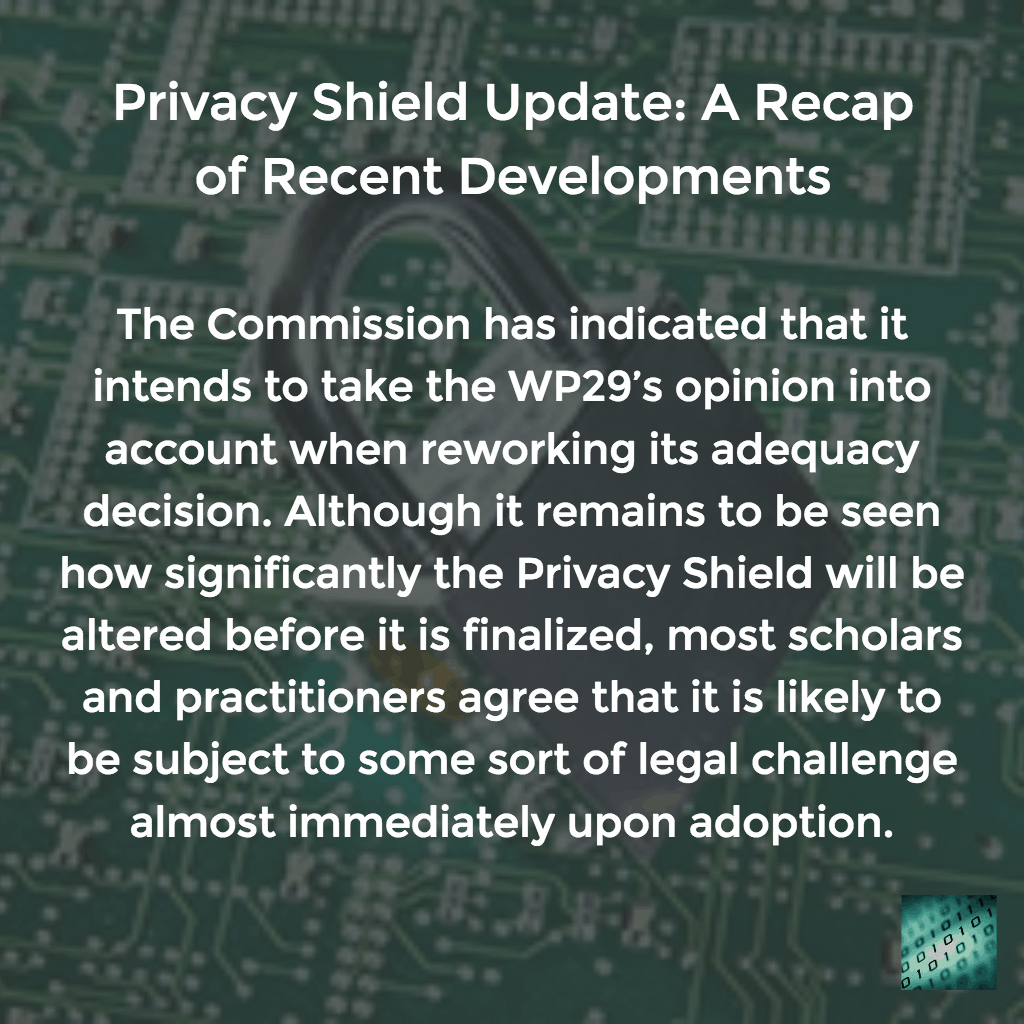ARCHIVED CONTENT
You are viewing ARCHIVED CONTENT released online between 1 April 2010 and 24 August 2018 or content that has been selectively archived and is no longer active. Content in this archive is NOT UPDATED, and links may not function.Extract from article by Melinda McLellan and Jenna Felz
On April 13, 2016, the Article 29 Working Party (WP29), an influential group of European data protection authorities, issued a non-binding opinion that criticized certain elements of the fledgling Privacy Shield framework. Although the Privacy Shield remains in limbo at this time, a flurry of speculation and Shield-adjacent legal maneuvers have colored the landscape and heightened concerns about its long-term viability.
The Privacy Shield was proposed in early February as a replacement for the EU-U.S. Safe Harbor framework following the Safe Harbor’s demise in October 2015 . The invalidation of the Safe Harbor left thousands of companies in search of alternatives to meet their cross-border data transfer needs, and introduced new uncertainty regarding the long-term sustainability of other mechanisms such as binding corporate rules and model clauses.
While declaring the Privacy Shield to be a significant improvement over the Safe Harbor framework, the WP29 found that the European Commission’s draft adequacy decision concerning the Privacy Shield lacked clarity and was inconsistent. The opinion urged the Commission to clarify the text and to evaluate its provisions in light of the recently approved EU General Data Protection Regulation (GDPR).
Read the complete article at Privacy Shield Update: A Recap of Recent Developments






















